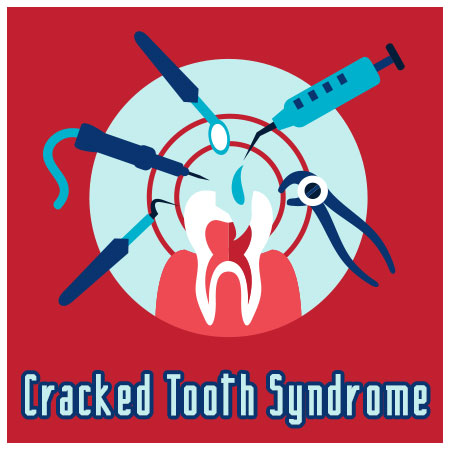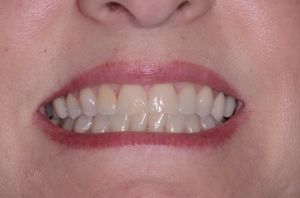Cracked tooth syndrome (CTS), also known as cracked cusp syndrome or split tooth syndrome, is a painful condition that results from a crack in one of your teeth. CTS can mean anything from a tiny hairline split in the crown to a fracture that goes all the way to the root.
If you have a nasty toothache and remember biting down on something hard, it’s time to contact Dr. Saydyk. Don’t worry though, because the dental professionals at Stoneridge Dental are committed to giving you the best oral care that Gilbert has available. To find out more about cracked tooth syndrome, read on.

Symptoms of Cracked Tooth Syndrome
Although this condition can vary a little bit for everyone, here are some common signs you may have cracked tooth or cracked cusp syndrome:
- Biting down in a certain area causes sharp pain
- The pain goes away shortly after you have finished chewing or biting
- You have localized sensitivity to hot or cold, and sticky, sweet, or sour foods
- You find that you have begun favoring one side of your mouth for chewing denser food or all food
- You notice sharp, localized pain while biting and immediately afterward (indicating the opening and closing of the crack)
What Causes Cracked Tooth Syndrome?
There are a number of things that cause teeth to crack, but it is usually one of the following culprits:
- Facial/oral trauma
- Chewing hard foods (nuts, hard candy, ice, etc.)
- Teeth grinding
- A worn or damaged dental restoration
- Damage from an improperly performed or unsuccessful root canal
- A bite misalignment that causes uneven chewing pressure
- Eating or drinking very hot and very cold foods/beverages at the same time
Treating Cracked Tooth Syndrome
No one in Gilbert should have to deal with the pain and inconvenience of a cracked tooth. In addition to being extremely uncomfortable, CTS may allow nasty bacteria into the root and/or pulp chamber of the tooth. At that point, a root canal or even extraction will likely be necessary.
If you think you have cracked tooth syndrome, visit Dr. Saydyk before it becomes serious! If you have any questions or would like to schedule an appointment, contact us today.
The content of this blog is not intended to be a substitute for professional medical advice, diagnosis, or treatment. Always seek the advice of qualified health providers with questions you may have regarding medical conditions.
Sources
http://en.wikipedia.org/wiki/Cracked_tooth_syndrome
http://www.aae.org/patients/symptoms/cracked-teeth.aspx?gclid=CKLTzunuqMUCFQqEfgodvioA0A



